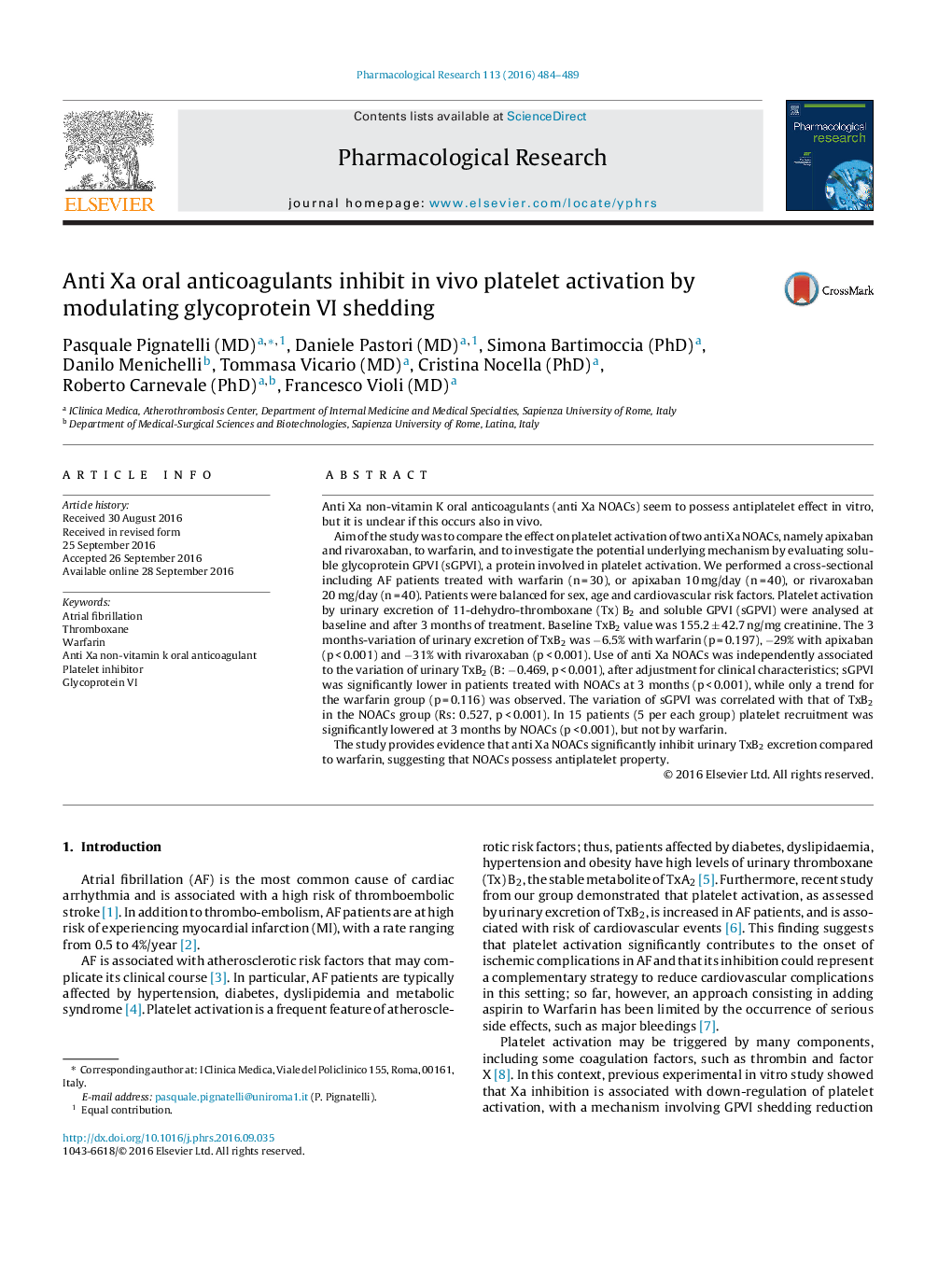| Article ID | Journal | Published Year | Pages | File Type |
|---|---|---|---|---|
| 5557604 | Pharmacological Research | 2016 | 6 Pages |
Anti Xa non-vitamin K oral anticoagulants (anti Xa NOACs) seem to possess antiplatelet effect in vitro, but it is unclear if this occurs also in vivo.Aim of the study was to compare the effect on platelet activation of two anti Xa NOACs, namely apixaban and rivaroxaban, to warfarin, and to investigate the potential underlying mechanism by evaluating soluble glycoprotein GPVI (sGPVI), a protein involved in platelet activation. We performed a cross-sectional including AF patients treated with warfarin (n = 30), or apixaban 10 mg/day (n = 40), or rivaroxaban 20 mg/day (n = 40). Patients were balanced for sex, age and cardiovascular risk factors. Platelet activation by urinary excretion of 11-dehydro-thromboxane (Tx) B2 and soluble GPVI (sGPVI) were analysed at baseline and after 3 months of treatment. Baseline TxB2 value was 155.2 ± 42.7 ng/mg creatinine. The 3 months-variation of urinary excretion of TxB2 was â6.5% with warfarin (p = 0.197), â29% with apixaban (p < 0.001) and â31% with rivaroxaban (p < 0.001). Use of anti Xa NOACs was independently associated to the variation of urinary TxB2 (B: â0.469, p < 0.001), after adjustment for clinical characteristics; sGPVI was significantly lower in patients treated with NOACs at 3 months (p < 0.001), while only a trend for the warfarin group (p = 0.116) was observed. The variation of sGPVI was correlated with that of TxB2 in the NOACs group (Rs: 0.527, p < 0.001). In 15 patients (5 per each group) platelet recruitment was significantly lowered at 3 months by NOACs (p < 0.001), but not by warfarin.The study provides evidence that anti Xa NOACs significantly inhibit urinary TxB2 excretion compared to warfarin, suggesting that NOACs possess antiplatelet property.
Graphical abstractDownload high-res image (206KB)Download full-size image
